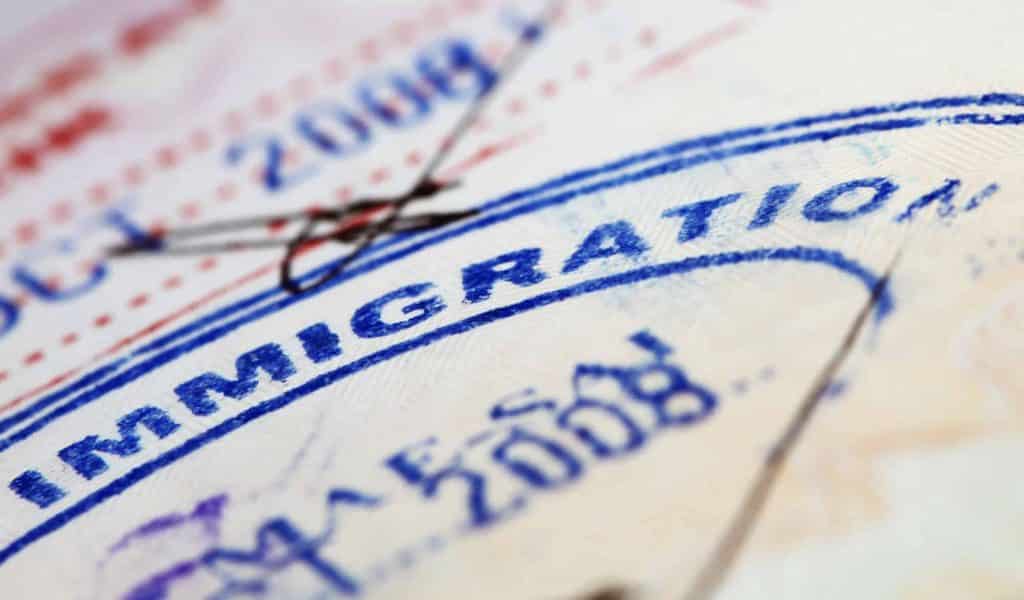Statistics show that tens of thousands of individuals nationwide are detained in one of the 200 immigrant prisons and jails at any time.
If a friend or loved one is currently facing immigration detention, it’s important to know that you’re not alone and there are steps you can take to have them released. Understanding the reasons behind immigration detention and how to navigate the process is a great place to start.
That’s what we’re here to help you with. Before walking you through some tips for ensuring a timely release, we’ll explain the process. From understanding your legal rights to working with a bail bond company, here’s everything you need to know.
Understanding Immigration Detention
We want to start by saying that being separated from a loved one in immigration detention can be incredibly stressful and anxiety-inducing. Understanding what immigration detention is and why it occurs can help you navigate the process a bit easier, though.
Immigration detention is the practice of detaining individuals who are suspected of being undocumented immigrants. Sometimes, people are also detained for visa overstays. This can happen in various places but typically occurs during:
- Border crossings
- Routine traffic stops
- Other immigration or asylum proceedings
According to international immigration laws, immigration detention should only be used as a last resort. This means that detention is only allowed when less restrictive measures aren’t available.
Like any other person, those in immigration detention have rights that must be respected. Anyone in immigration detention has the right to:
- Receive legal assistance
- Access to medical care
- Protection from harm
It’s important to understand your rights and to seek help from professionals who can assist you in navigating this complicated system.
Release Eligibility
Now, what can you do to ensure immigration detention release? To start, you need to understand what makes someone eligible for release. Immigration authorities weigh two factors when determining eligibility:
- Fight risk
- Danger to the community
Being a flight risk means the authorities believe the person won’t attend future appointments and hearings. This could be because they lack ties to the community or have a history of not appearing for court dates.
Being a danger to the community means the person is perceived as a threat to public safety. This could be because of criminal history, gang affiliations, or other factors.
If your loved one or friend is not a flight risk or a danger to the community, they could be eligible for release on their recognizance (meaning no bond is required), on a reasonable bond, or a supervision program. These programs may include:
- Wearing an ankle bracelet
- Telephone monitoring
- Regular check-ins with ICE
It’s important to note that eligibility for release isn’t automatic, and it’s ultimately up to the discretion of the immigration authorities. However, having an experienced immigration attorney on your side can increase your chances of success in securing your loved one or friend’s release.
Immigration Detention Release Process
Is your friend or loved one eligible for release from immigration detention? If so, the next step is usually to get an immigration bail bond. Here’s how that process works.
Step 1: Contact an Immigration Bond Agent
To post an immigration bond, you’ll need to work with a bail bond company or a bond agent specializing in immigration bonds. The agent will ask for information about the detainee’s case, such as where they are being held and how much the bond is set for.
Step 2: Gather Necessary Information and Documentation
The bond agent will require certain information and documentation to process the application. This includes the following information:
- Detainee’s full name
- Alien registration number (A-number)
- The location where they are being held
- Bond amount
Also, the person posting the bond must provide proof of identity and legal immigration status. That’s us, in this case, and we’re more than qualified to post bail bonds for our clients.
Step 3: Fill Out the Bond Application
Once the bond agent has the necessary information and documentation, they will complete the application and process the bond premium payment. The bond premium is a non-refundable fee paid to the bond agent for their services. The premium can range from 10 to 20% of the bond amount.
Step 4: Wait for ICE to Process the Bond
After the bond application is submitted, it takes time for ICE to process it. The time may vary, but it usually takes around 24 hours to process and release the detainee. During this time, the detainee will remain in custody until the bond is processed and paid.
Step 5: Detainee’s Release From Custody
Once the immigration bond is processed and paid, ICE will release the detainee from custody. The detainee will still have to attend all immigration court hearings and comply with all the conditions of their release.
Immigration Bond Hearings
As mentioned, it’s important to understand that being in immigration detention doesn’t always result in immediate release. If ICE hasn’t agreed to or has set an unreasonably high bond, your friend or loved one (whoever is detained) might require an immigration bond hearing may be necessary.
These hearings are held before a judge decides if the detainee is eligible for an immigration bond. Eligibility for a bond is determined based on several factors, including:
- Financial stability
- Immigration history
- Criminal record
- Family ties
- Community connections in the US
Meeting all of these requirements makes it easier to qualify for an immigration bond. However, to increase the chances of success, you must work closely with an experienced immigration attorney and prepare strong evidence that you’re eligible for a bond.
This evidence can include documents such as:
- Proof of employment
- Bank statements
- Letters of support from family and community members
Remember, the immigration bond hearing is critical to securing release. Being fully prepared can make all the difference.
Get Legal Help
As you can see, the immigration detention release process is complex. However, there are options available to those seeking freedom.
At Amistad Bail & Immigration Bonds, we are committed to helping our clients navigate this difficult system with as much support and resources as possible. If you or a loved one needs immigration bond assistance, please don’t hesitate to contact us today for a free consultation.
Trust in our years of experience and expertise to help secure the release of your loved one from detention.











